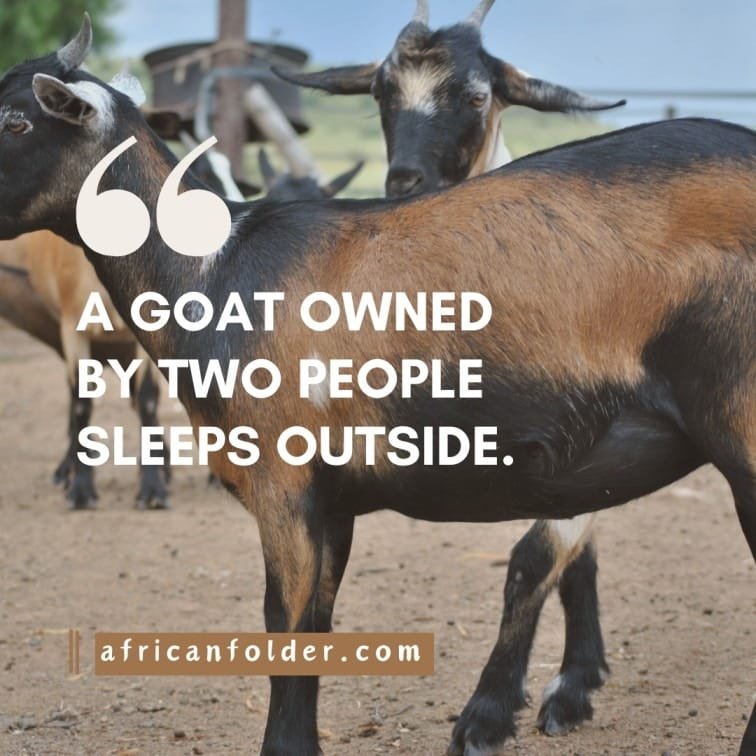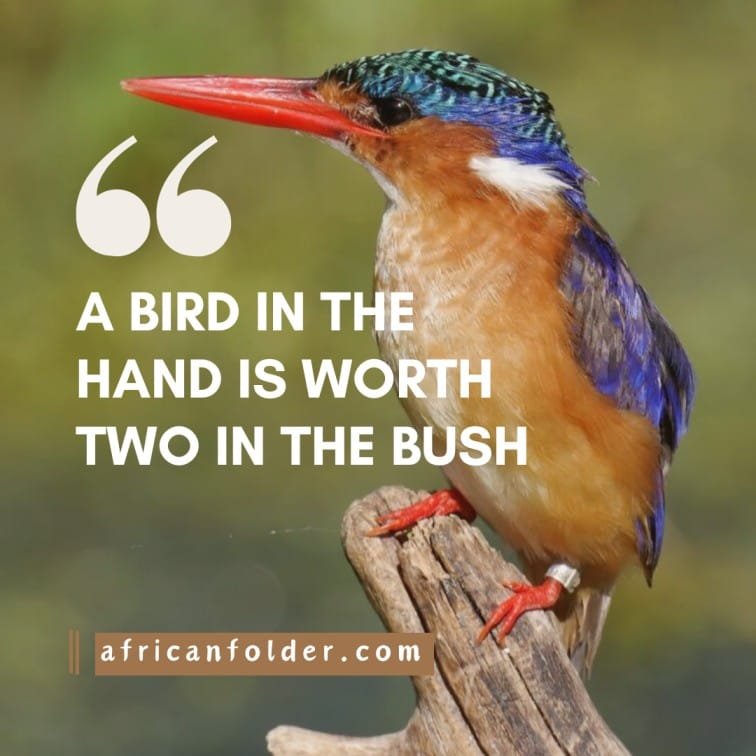African proverbs are a treasure trove of wisdom, encapsulating the rich cultural heritage and timeless insights of the continent. These proverbs passed down through generations, offer valuable life lessons and reflect the values, beliefs, and experiences of various African communities.
What Are African Proverbs?
African proverbs are short, metaphorical sayings used to convey moral lessons, advice, or universal truths. They often draw imagery from nature, daily life, and community dynamics, serving as an integral part of African oral traditions. Whether shared in storytelling, teaching, or conversation, African quotations bridge the past and present by preserving traditional wisdom.
The Significance of African Proverbs
- Cultural Preservation: African proverbs safeguard cultural heritage. They encapsulate beliefs, practices, and philosophies, ensuring that future generations remain connected to their roots. For instance, the proverb “It takes a village to raise a child” highlights the communal effort that defines many African societies.
- Moral Guidance: Many African sayings impart lessons on values like humility, respect, and perseverance. “When there is no enemy within, the enemies outside cannot hurt you” underscores the importance of inner peace and resilience.
- Wisdom and Insight: African proverbs about life offer timeless truths about human relationships, challenges, and triumphs. For example, “Do not look where you fell, but where you slipped” teaches the importance of identifying root causes over symptoms.
175+ Popular African Proverbs and Meanings

African Proverbs About Wisdom
- “Wisdom does not come overnight.”
- Indicates that wisdom is acquired gradually through experience.
- “The fool speaks, the wise man listens.”
- Suggests that wise people gain insight by listening rather than talking.
- “He who learns, teaches.”
- Encourages sharing knowledge with others.
- “A wise person will always find a way.”
- Reflects that wisdom and resourcefulness lead to solutions.
- “Knowledge is like a garden; if it is not cultivated, it cannot be harvested.”
- Stresses that knowledge requires effort to grow and be useful.
- “Wisdom is not like money to be tied up and hidden.”
- Encourages sharing wisdom freely.
- “If the lion doesn’t tell his story, the hunter will.”
- Warns of the danger of letting others define your narrative.
- “By the time the fool has learned the game, the players have dispersed.”
- Suggests that delay in learning can lead to missed opportunities.
- “A snake that you can see does not bite.”
- Implies that known dangers are less threatening.
- “Do not look where you fell, but where you slipped.”
- Advises focusing on the root cause of a problem rather than its outcome.
African Proverbs About Leadership and Responsibility
- “He who thinks he is leading and has no one following him is only taking a walk.”
- Implies that leadership is validated by followers.
- “A goat owned by two people sleeps outside.”
- Highlights the challenges of shared responsibilities.
- “The sun will shine on those who stand before it shines on those who kneel under them.”
- Reflects the concept of hierarchy and priorities.
- “A single bracelet does not jingle.”
- Signifies the importance of collaboration.
- “When the shepherd is away, the sheep will scatter.”
- Suggests that leadership ensures order.
- “A bird will always use another bird’s feathers to feather its own nest.”
- Indicates reliance on others to achieve goals.
- “He who does not know one thing knows another.”
- Reflects that everyone has unique knowledge or skills.
- “A chattering bird builds no nest.”
- Suggests that talk alone doesn’t accomplish tasks.
- “To get lost is to learn the way.”
- Implies that making mistakes is part of learning.
- “Even the best cooking pot will not produce food.”
- Stresses the need for effort and resources to achieve results.
African Proverbs About Love and Relationships
- “Where there is love, there is no darkness.”
- Implies that love brings light and clarity.
- “A child can play with its mother’s breasts, but not its father’s testicles.”
- Stresses boundaries and respect within relationships.
- “One who loves the vase, loves also what is inside.”
- Reflects the idea of loving everything about something or someone.
- “A woman is a flower in a garden; her husband is the fence around it.”
- Indicates the protective role of a husband.
- “He who forgives ends the quarrel.”
- Highlights the power of forgiveness in resolving conflicts.
- “Love is a despot who spares no one.”
- Suggests that love has the power to rule over everyone equally.
- “When one is in love, a cliff becomes a meadow.”
- Reflects that love makes challenges seem easier.
- “Love, like rain, does not choose the grass on which it falls.”
- Implies that love can touch anyone, regardless of status.
- “Marriage is like a groundnut; you have to crack it to see what is inside.”
- Suggests that relationships reveal their true nature over time.
- “A happy man marries the girl he loves; a happier man loves the girl he marries.”
- Reflects the importance of commitment in love.
African Proverbs About Perseverance and Hard Work
- “No matter how hot your anger is, it cannot cook yams.”
- Suggests that anger is not productive.
- “You learn how to cut down trees by cutting them down.”
- Emphasizes learning through practical experience.
- “When there is no enemy within, the enemies outside cannot hurt you.”
- Emphasizes the power of inner strength.
- “A river does not flow backward.”
- Implies that one should keep moving forward in life.
- “Rain does not fall on one roof alone.”
- Reflects the shared nature of human experiences.
- “The lizard that jumped from the high iroko tree to the ground said he would praise himself if no one else did.”
- Highlights self-confidence and self-recognition.
- “A person with too much ambition cannot sleep in peace.”
- Reflects that over-ambition can lead to restlessness.
- “Smooth seas do not make skillful sailors.”
- Suggests that challenges build competence and character.
- “If you want to go fast, go alone; if you want to go far, go together.”
- Highlights the value of teamwork and perseverance.
- “The best way to eat an elephant is one bite at a time.”
- Advises breaking down big tasks into manageable parts.
African Proverbs About Human Nature
- “A man who uses force is afraid of reasoning.”
- Suggests that violence is a sign of weakness.
- “He who is unable to dance says the yard is stony.”
- Suggests that people often blame external factors for their own shortcomings.
- “Not everyone who chases the zebra catches it.”
- Reflects that effort does not always guarantee success.
- “What is bad for the beehive is bad for the bees.”
- Implies that the welfare of the group affects individuals.
- “The eye never forgets what the heart has seen.”
- Suggests that emotional experiences leave a lasting impact.
- “The teeth are smiling, but is the heart?”
- Warns against false appearances.
- “A child who is not embraced by the village will burn it down to feel its warmth.”
- Highlights the consequences of neglecting children.
- “The axe forgets, but the tree remembers.”
- Suggests that those who harm others may forget, but the victims remember.
- “A rat cannot call the cat to account.”
- Reflects on the power dynamics in holding others accountable.
- “A bird in the hand is worth two in the bush.”
- Advises valuing what you have over uncertain pursuits.
African Proverbs About Community and Unity
- “It takes a village to raise a child.”
- Emphasizes the role of the community in nurturing and educating children.
- “If you want to go fast, go alone. If you want to go far, go together.”
- Suggests that teamwork and unity lead to greater success in the long run.
- “When spider webs unite, they can tie up a lion.”
- Highlights the power of collective effort and unity.
- “If the lion doesn’t tell his story, the hunter will.”
- Implies the importance of sharing your own story to control your narrative.
- “Rats don’t dance in a room without a cat.”
- Suggests that a threat of danger can stop people from acting recklessly.
- “A single bracelet does not jingle.”
- Implies that collaboration is needed for success.
- “Unity is strength, division is weakness.”
- Reflects the power of working together.
- “The best way to get your mind off your problems is to help someone else.”
- Suggests that helping others can bring personal fulfillment and perspective.
- “One finger cannot kill a lice.”
- Stresses the need for collaboration to overcome challenges.
- “The child who is not embraced by the village will burn it down to feel its warmth.”
- Warns that neglecting the youth leads to destructive consequences.
African Proverbs About Life and Death
- “Life is a flower for which love is the honey.”
- Suggests that love is the sweetest and most essential part of life.
- “A man who has not traveled widely thinks his mother is the only cook.”
- Implies that exposure and experience broaden perspectives.
- “The death of an elder is like the burning of a library.”
- Reflects the loss of wisdom and knowledge when elders pass away.
- “When the roots of a tree begin to decay, it spreads death to the branches.”
- Suggests that problems at the foundation affect everything that follows.
- “There is no remedy for death but to face it.”
- Implies that death is inevitable and must be accepted.
- “A fool who has a voice in the matter is worse than a fool who has no voice.”
- Reflects the harm of foolishness when it is given authority.
- “A man who is not afraid of dying is a man who has no experience of life.”
- Suggests that fear of death is part of understanding the value of life.
- “The best time to plant a tree was 20 years ago. The second best time is now.”
- Emphasizes the importance of starting efforts, no matter the time.
- “If you want to go fast, go alone. If you want to go far, go together.”
- Highlights the significance of collective efforts in achieving long-term success.
- “Life is not measured by the number of breaths we take but by the moments that take our breath away.”
- Suggests that the richness of life comes from extraordinary experiences, not just time.
African Proverbs About Nature and Environment
- “The earth is not a gift from our ancestors; it is a loan from our children.”
- Stresses the responsibility to preserve the environment for future generations.
- “The tree that grows on the mountain is admired by all who see it.”
- Implies that greatness often attracts attention and admiration.
- “The wind does not break a tree that bends.”
- Suggests that flexibility is key to overcoming challenges.
- “What you do to the earth, you do to yourself.”
- Reflects the interconnectedness of humans and the environment.
- “The forest does not tremble at the falling of a tree.”
- Implies that nature is resilient despite the loss of individual elements.
- “If you want to know the end, look at the beginning.”
- Suggests that understanding the origins of something helps predict its future.
- “A bird does not change its feathers because the weather is bad.”
- Reflects the idea of staying true to one’s nature regardless of circumstances.
- “The rain does not fall on one roof alone.”
- Highlights that challenges and blessings affect everyone collectively.
- “When the roots of a tree are deep, there is no reason to fear the wind.”
- Suggests that a solid foundation provides strength to face challenges.
- “If you wish to be rich, do not take a dead person’s clothes.”
- Warns against exploiting others for personal gain.
African Proverbs About Work and Success
- “A person who does not know one thing knows another.”
- Implies that everyone has something valuable to contribute.
- “The person who is not willing to work hard should not expect success.”
- Suggests that success requires effort and perseverance.
- “He who does not work shall not eat.”
- Implies that hard work is a necessary condition for prosperity.
- “Do not call the bird, ‘The one who flies,’ without knowing how it will fly.”
- Stresses the importance of preparation and understanding before making judgments.
- “Success is not in what you have, but in what you do with what you have.”
- Reflects that success is determined by one’s actions and choices, not possessions.
- “To try and fail is not the same as failing to try.”
- Suggests that attempting something is better than not trying at all.
- “No one tests the depth of a river with both feet.”
- Implies that caution is needed when venturing into unknown territory.
- “The one who does not know how to dance says the ground is uneven.”
- Reflects the tendency to blame external factors for personal failures.
- “The reward for work well done is the opportunity to do more.”
- Suggests that excellence in work leads to greater opportunities.
- “Don’t count your chickens before they are hatched.”
- Implies that one should not assume success before it happens.
African Proverbs About Strength and Resilience
- “The strongest man is the one who stands alone.”
- Suggests that resilience can be found in independence.
- “A single twig breaks, but the bundle of twigs is strong.”
- Reflects the power of unity and cooperation.
- “He who has health has hope, and he who has hope has everything.”
- Emphasizes the value of good health as a foundation for all achievements.
- “Fire is a good servant but a bad master.”
- Warns of the dangers of allowing something powerful to control you.
- “A lion does not turn around when a small dog barks.”
- Suggests that a person of strength ignores insignificant distractions.
- “The one who is afraid of the wind will not see the sunrise.”
- Implies that overcoming fear is necessary to experience success.
- “There is no substitute for hard work.”
- Emphasizes that success is the result of consistent effort.
- “A man who is afraid of suffering is already suffering.”
- Reflects that fear of hardship causes more pain than the hardship itself.
- “If there is no enemy within, the enemies outside cannot hurt you.”
- Suggests that inner peace and strength protect against external challenges.
- “It is better to be a lion for a day than a sheep for a lifetime.”
- Encourages taking bold actions, even if short-lived, over a life of submission.
African Proverbs About Family
- “A family tie is like a tree, it can bend but it cannot break.”
- Reflects the strength and resilience of family bonds, even during difficult times.
- “The family is the first school for the child.”
- Suggests that family plays the most significant role in shaping a person’s character.
- “A bird that flies off the ground and lands on an anthill is still on the ground.”
- Implies that no matter where you go, your roots and foundation (family) are always with you.
- “Children are the reward of life.”
- Reflects the joy and fulfillment that children bring to their parents and families.
- “What you help a child to love can be more important than what you help him to learn.”
- Emphasizes the importance of fostering values and love in children over just academic achievements.
- “The one who is not at home should not complain about the food.”
- Suggests that those who do not contribute to the family should not criticize the family’s ways or decisions.
- “A child who is not nurtured will not grow to reach the harvest.”
- Reflects the idea that family care is crucial for personal growth and success.
- “An old man who can dance should not discourage the young from dancing.”
- Suggests that experience should encourage, not hinder, the growth and freedom of the younger generation.
- “A child who is allowed to be naughty will not have a good future.”
- Reflects the importance of discipline and proper upbringing within the family.
- “A man who does not know his father’s name is like a tree without roots.”
- Emphasizes the importance of knowing and respecting family history and heritage.
African Proverbs About Business and Entrepreneurship
- “Money can’t talk, yet it can make lies look true.”
- Reflects the idea that money can influence decisions, even when they aren’t based on truth.
- “He who learns, teaches.”
- Suggests that knowledge gained through experience or education should be shared with others to help them grow.
- “A bird does not forget the voice of its owner.”
- Implies that good business relationships are based on trust and loyalty, which should not be forgotten.
- “You cannot build a house with a single stone.”
- Reflects that business success is achieved through collaboration and building a team.
- “A man who is afraid of the wife’s influence does not have peace.”
- Suggests that balance and harmony in relationships, especially in business partnerships, are necessary for peace and success.
- “When the roots of a tree begin to decay, it spreads death to the branches.”
- Implies that poor foundations in business or leadership can lead to the failure of the entire organization.
- “A successful business is built on trust, not just profits.”
- Suggests that long-term success in business comes from building relationships based on mutual respect and trust.
- “The best time to plant a tree was 20 years ago; the second best time is now.”
- Reflects the importance of starting something as soon as possible, even if you feel you’ve missed an earlier opportunity.
- “If you want to go fast, go alone; if you want to go far, go together.”
- Implies that teamwork and collaboration are key to achieving lasting success.
- “You cannot run a business with one hand.”
- Suggests that success in business requires multiple efforts and the cooperation of others.
- “The man who is afraid of making mistakes will never build an empire.”
- Reflects that taking risks and learning from failure are essential to entrepreneurial success.
- “He who does not innovate will perish.”
- Implies that staying stagnant in business will lead to failure; innovation is necessary for survival.
- “The eye that looks ahead must also look behind.”
- Suggests that to grow a business, one must always balance forward thinking with reflection on past lessons.
- “Don’t wait for the perfect opportunity. Make it.”
- Encourages proactive action and creating opportunities rather than waiting for them to come.
- “A man who does not know his business will lose it.”
- Implies that knowledge of your industry or field is vital to the survival and growth of your business.
- “The one who is carrying a heavy load does not fear the sound of thunder.”
- Suggests that those who have strong foundations and preparation in business are not easily shaken by challenges.
- “A good business is not built by sitting idle; it’s built by constant action.”
- Reflects that continuous effort and diligence are required to build a successful enterprise.
- “It is not the one who has the most knowledge, but the one who works the hardest, who succeeds.”
- Implies that hard work and determination are just as important as knowledge in achieving business success.
- “The work of a man is the flesh, and the work of his mind is the soul.”
- Suggests that both physical effort and mental clarity are essential to success in business.
- “You can’t catch a fish with a dry hook.”
- Reflects that success requires effort and the right conditions.
African Proverbs About the Nature of People
- “A person who has not traveled widely thinks his mother is the only cook.”
- Suggests that people often limit their understanding of the world based on their narrow experiences.
- “The mouth that eats is the mouth that speaks.”
- Reflects the idea that those who benefit from others should acknowledge them.
- “A man who uses force is afraid of reasoning.”
- Implies that those who rely on violence are often lacking in wisdom or logical thought.
- “It is better to be alone than in bad company.”
- Suggests that one should value solitude over the influence of negative people.
- “Don’t trust a person who is not willing to speak of their past.”
- Reflects the idea that openness about one’s history is important for trustworthiness.
- “He who does not accept correction is like a tree with no fruit.”
- Implies that humility and the ability to learn from mistakes are key to growth.
- “A person who has no hand cannot scratch his head.”
- Suggests that one’s capabilities are determined by their resources and abilities.
- “A child who is not listened to will grow up to be a problematic adult.”
- Emphasizes the importance of paying attention to children’s needs and concerns.
- “What an old man sees while sitting, a young man cannot see even if he climbs a tree.”
- Reflects the value of experience and wisdom over youth and enthusiasm.
- “The one who calls for the rain must have the strength to endure the thunder.”
- Implies that one must be prepared for the challenges that come with taking responsibility.
African Proverbs About Courage and Determination
- “A bird in the hand is worth two in the bush.”
- Suggests that it’s better to appreciate and make use of what you already have rather than chasing after something uncertain.
- “Courage is not the absence of fear, but the ability to act despite it.”
- Implies that true bravery is about overcoming fear, not the lack of it.
- “He who fears he will suffer, already suffers what he fears.”
- Reflects the idea that fear of suffering often causes more anxiety than the suffering itself.
- “The lion does not turn around when the small dog barks.”
- Implies that powerful people should not be distracted by insignificant challenges.
- “One who does not dare to grasp the thorn should never crave the rose.”
- Suggests that rewards require courage to face challenges and risks.
- “Fortune favors the brave.”
- Reflects that bravery often leads to success.
- “If the wind will not serve, take to the oars.”
- Implies that if conditions are not in your favor, take action to make progress.
- “A man who is afraid to die is already dead.”
- Suggests that fear of death is more debilitating than death itself.
- “The road to success is dotted with many tempting parking spaces.”
- Implies that perseverance and focus are required to stay on the path to success.
- “The more the water, the easier it is to catch fish.”
- Reflects that abundance can create opportunities for success.

The Role of African Proverbs in Modern Society
In today’s fast-paced world, African proverbs remain relevant and continue to inspire and educate people globally. They are used in various contexts, including:
- Education: Teachers and educators incorporate African proverbs into lessons to teach moral values and cultural awareness. A proverb like “He who learns, teaches” underscores the value of knowledge sharing.
- Motivation: These proverbs are often quoted in motivational speeches, literature, and social media to inspire and uplift individuals. “The sun will shine on those who stand before it shines on those who kneel under them” resonates as a call to leadership and courage.
- Conflict Resolution: In many African communities, elders use proverbs to mediate disputes and promote understanding and harmony.
Conclusion
African proverbs are more than just sayings—they are timeless guides rooted in wisdom, cultural identity, and universal truths. Whether teaching us about love, resilience, or the value of community, these proverbs enrich our lives and connect us to the heart of Africa.
Let these timeless African proverbs inspire your daily life, offering guidance, motivation, and insight that transcend generations.














